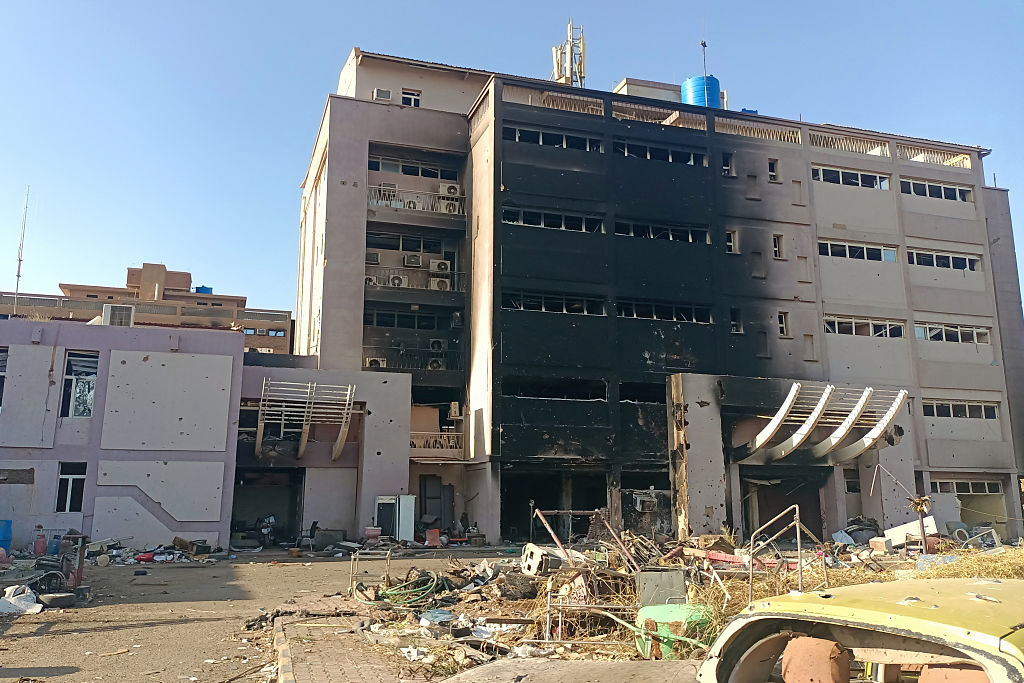As March ended, Sudanese Armed Forces (SAF) leader Gen. Abdel Fattah al-Burhan stood outside the Republican Palace and raised his fist, a demonstration that the rival Rapid Support Forces (RSF) had been driven from Khartoum.
As Sudan’s war enters its third year, analysts say the return of al-Burhan to the nation’s capital marked a turning point in the war between Sudan’s de fact leader and RSF chief Mohamed Hamdan “Hemedti” Dagalo that began on April 15, 2023. Al-Burhan’s government has operated out of Port Sudan for most of the conflict.
“The recapture of Khartoum city thus marks a watershed moment in the conflict: The SAF has now gained the upper hand, particularly in central Sudan,” analysts with the Armed Conflict Location & Event Data (ACLED) organization wrote recently.
The SAF’s recapture of Khartoum was the result of a six-month campaign that began in September 2024 and was aimed at breaking RSF supply lines in the capital and driving it from central Sudan. Since then, the SAF and its allies have retaken more than 430 locations across central and southern Sudan, according to ACLED.
“The RSF’s defeat [in Khartoum] is one of several recent setbacks that have left the group on the defensive,” Mariam Wahba, a research analyst at the Foundation for Defense of Democracies, wrote for The Long War Journal.
At the same time, the RSF and its allies have increased attacks on civilians, with reports of sexual violence and executions. RSF fighters shelled Khartoum neighborhoods as they retreated across the Nile into Omdurman.
The SAF victories have effectively split Sudan, with government forces controlling the east and the RSF dominating the west — with one exception. North Darfur and its capital, el-Fasher, remain in the hands of the SAF and allied militias despite months of RSF shelling.
In mid-April, RSF fighters attacked the Zamzam displaced persons camp in North Darfur, “obliterating” it, in the words of one observer. Fighters killed hundreds of civilians seeking shelter in Zamzam and drove thousands of other residents to seek refuge in nearby communities.
The destruction of the Zamzam camp further complicated Africa’s largest humanitarian crisis. Since 2023, more than 12 million people — about a quarter of Sudan’s pre-war population — have fled their homes. More than 3 million have fled the country entirely, with many living in camps in Chad, or seeking refuge in Egypt, Ethiopia and South Sudan.
The destruction of Sudan’s health care infrastructure has led to the spread of cholera, dengue, malaria and measles across two-thirds of Sudan’s states. Cholera alone has killed 1,500 people.
More than half of Sudan’s population needs humanitarian aid, according to the United Nations. Funding shortfalls have left large parts of the country beyond the reach of aid operations, leading to famine and starvation.
“Without immediate assistance, especially in famine or famine-risk areas, thousands of lives are at risk,” Makena Walker, the World Food Programme’s acting country director in Sudan, told the U.N.
The U.N. estimates that 146,000 Sudanese children will suffer from acute malnutrition this year, leaving them up to 11 times more likely to die than a healthy child. International aid organizations have accused both sides in the conflict of blocking aid convoys and using food as a weapon.
According to ACLED analysts, recent SAF victories are the product of three primary factors: The SAF has recruited thousands of new soldiers over the past year, reducing its earlier manpower shortage; the SAF has attracted allies among local militias repulsed by the RSF’s brutality; and fractures have begun forming within the RSF itself.
Increased military support in the form of Turkey’s Bayraktar drones has helped the SAF turn the tide in its favor, experts say.
Hemedti on April 16 declared the creation of a parallel government in RSF-controlled territory. The declaration of the so-called Government of Peace and Unity derailed the latest attempt to broker a peace deal between the two sides. That gathering in London dissolved in acrimony when SAF supporters Saudi Arabia and Egypt failed to find common ground with the RSF’s primary backer, the United Arab Emirates.
Al-Burhan repeatedly has refused to negotiate with the RSF. Shortly after the SAF retook Khartoum, al-Burhan announced: “We are continuing on the path to victory until we cleanse every inch of the country [of RSF fighters].”
Analyst Mohy Omer of the National Democratic Institute told Al Jazeera that he sees no path to a military victory for either side.
“The past two years have proven that,” Omer said. “So, the only way to resolve this conflict is by direct negotiations between these two fighting armies led by the international community.”

